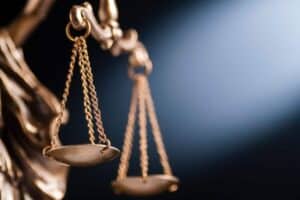The self-confessed 'rapist' featured in the documentary claims he was paid to read a script to say he was HIV positive and had raped 24 women.

The Diepsloot community is angered by the BBC’s ‘My Neighbor, The Rapist’ documentary, which tackles rape culture in the area and features a self-confessed rapist, eNCA reports.
The “rapist” now reportedly fears for his life after the airing of the documentary in which he admits to being HIV positive and spreading the virus by having raped 24 women.
However, David Kaise claims he had been paid R350 to read a script of his “confessions” for the documentary.
Kaise’s sister Pauline told the news channel she feels betrayed by the reporter who interviewed her brother for the BBC documentary.
The reporter, reportedly named Golden Mtika, is a neighbour and family friend of the Kaises.
“Golden, tell the people the truth, you know it’s a lie. He hurt me a lot. Now my brother can’t even come home,” Pauline said.
She said her brother fears for his life and that were he to set foot in Diepsloot again he would be killed and she would be left by herself.
In the documentary, a woman tells the reporter, Mtika, that she had been Kaise’s rape victim. However, the women says she, too, had been paid R200 to play the victim for the documentary.
The woman, named Ndivhuwo Ramaphalala said: “He said act as if David was your boyfriend and now your ex, and he met up with you and raped you.”
Ramaphalala has reportedly opened a case of defamation with the police.
Diepsloot community leaders have criticised the documentary for its alleged falsehoods, which have painted the township in a bad light.
One community activist, Papi Sethekge, was interviewed by the news channel and said community leaders were trying to control the situation and bring calm to the community.
“This is a community of love and peace, and people are coming from outside to get news, and when they don’t get news they plot the news; they just rehearse news and make the community look dirty,” Sethekge alleged.
Mtika was contacted by Drum magazine, who referred the publication to his producer at the BBC.
BBC World News spokesperson Marina Forsythe was quoted as saying: “The BBC has reviewed its production of the film, which fully complies with our editorial standards.
“There was no scripting of interviews and all interviewees provided accounts with full consent. It is completely untrue that any money was paid to contributors to take part in this documentary. We stand by our journalism.”
According to the report, Kaise has reported the matter to the police.
The police confirmed to the magazine that investigations in the matter were ongoing.
For more news your way, download The Citizen’s app for iOS and Android.






